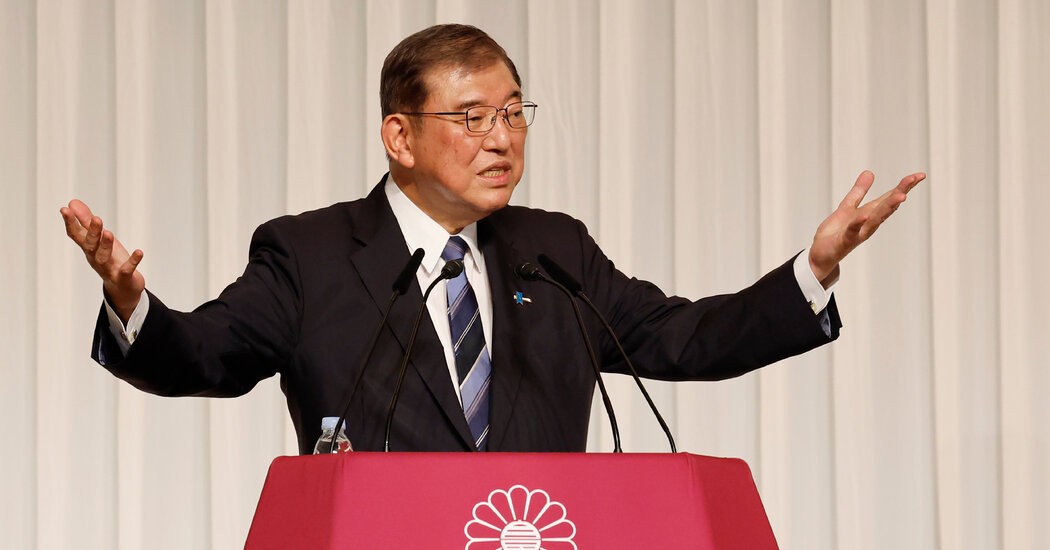2.4K
By avram anderson and Shealeigh Voitl
The Heritage Foundation’s Mandate for Leadership series began in 1981 following the 1980 presidential election, marking the beginning of the Reagan era. The 20-volume publication, totaling 3,000 pages, presented a series of policy proposals that the conservative think-tank believed would “revitalize our economy, strengthen our national security, and halt the centralization of power in the federal government.”
Ronald Reagan referred to the Mandate as “a warning shot, telling the liberal establishment that a new sheriff and new deputies had ridden into town and they could not expect to carry on business as usual.” The Heritage Foundation claims the Reagan administration adopted 60 percent of the document’s recommendations during his presidency.
Since then, the Heritage Foundation has published seven additional Mandate for Leadership books, each one more ambitious than the last. Its latest installment, Mandate for Leadership 2025: The Conservative Promise, vows to “institutionalize Trumpism,” according to Kevin D. Roberts, president of the Heritage Foundation. The 2025 volume advocates eliminating DC’s “deep state,” mass deportations of immigrants, replacing more than 50,000 civil servants in the federal government with MAGA loyalists, ending all federal discussion of or support for gender and LGBTQ+ identity, rolling back racial equity efforts, and restricting reproductive health, including abortion.
An “Authoritarian Playbook”
The Mandate for Leadership along with the proposed “solutions” document brazenly lays bare the plan of the next Republican administration and reads like an authoritarian playbook, targeting vulnerable communities, politicizing independent institutions, aggrandizing executive power, spreading disinformation, and quashing dissent. The sheer size of the document–which is more than 900 pages–might pose a challenge to digest, but what really makes it awfully unpalatable is its detailed plan for a nightmare scenario that would impact the rights of nearly all American citizens.
The Heritage Foundation has always aimed at dismantling government and weakening institutions, which have been the primary objectives of its Mandates for decades. What is different with this iteration is the anti-democratic, Christian Nationalist turn, and the relentless use of extremist language and policies that will impact people across the board, both domestically and internationally. The authors of Project 2025 intentionally use divisive rhetoric to encourage polarization, categorizing people as either deserving or undeserving of rights and demonizing and criminalizing those who do not conform to their worldview.
The playbook insists the “next conservative President must make the institutions of American civil society hard targets for woke culture warriors.” The term “woke,” first used in Black protest songs in the early 1900s, has been co-opted by the right, becoming a dog whistle for progressive values.
Governor of Florida Ron DeSantis used the term incessantly on the presidential campaign trail. Earlier this month, the 11th US Circuit Court of Appeals deemed Florida’s Stop Wrongs to Our Kids and Employees (W.O.K.E) Act, which set out to restrict “diversity and race-based discussions in private workplaces,” unconstitutional. DeSantis has often said Florida is where “woke goes to die.”
However, when “woke” remains largely undefined within political contexts, as seen in the most recent Mandate, it becomes a vague and subjective term. And this purposeful ambiguity opens the door for deeply harmful interpretations.
The efforts of the Heritage Foundation are part of the global anti-gender movement, which opposes policies and initiatives that support gender equality, LGBTQ rights, and what is often termed “gender ideology.” Anti-gender or anti-rights movement actors seek to establish the traditional family as the only unit to ensure the continuation of the human species, to prioritize parental authority over the rights of the child, to codify heterosexuality as the only legal and moral sexual orientation, and to promote the naturalization of the gender binary.
The opposition to “gender ideology,” which has been invoked by conservative politicians recently, serves as the symbolic glue that unites otherwise disparate religious figures, politicians, and secular groups to work toward a common goal. They oppose laws that challenge their worldview by manufacturing moral panic, using the rhetoric of protecting children to mobilize support for regressive policies that demonize and restrict the rights of marginalized communities.
Eliminating Sexual Orientation and Gender Identity from Public Life
Just two paragraphs into its foreword, the Mandate wastes no time conflating “transgenderism” with pornography while also implying that transgender people threaten the moral foundations of our society. In a February 2024 interview, Beirne Roose-Snyder, Senior Policy Fellow at the Council for Global Equality, observed that much like the authoritarian, global anti-gender movement, the targeting of reproductive and LGBTQI+ rights is “immediately overrepresented throughout Project 2025.”
Throughout, the Mandate specifically takes aim at federal policies deemed examples of “leftist wokeism,” including programs that support sexual and reproductive rights; LGBTQ+ civil rights; Diversity, Equity, and Inclusion (DEI) initiatives; in addition to policies addressing energy, the environment, defense, and international aid.
The Mandate for Leadership calls for the removal of the terms “sexual orientation, gender identity, diversity, equity, and inclusion, gender, gender equality, gender equity, gender awareness, gender-sensitive, abortion, reproductive health, reproductive rights, and any other term used to deprive Americans of their First Amendment rights out of every federal rule, agency regulation, contract, grant, regulation, and piece of legislation that exists,” effectively eliminating legal protections, at the federal level, for LGBTQ people, women, and people of color.
Roose-Snyder of the Council for Global Equality has characterized the removal of these terms from all federal government documents as “eliminationist,” geared towards the erasure of any mention of sexual orientation or gender identity from public life, social protections, and democracy. This eliminationist program would produce devastating consequences for equal protection under the law, justifying increased, overt discrimination in numerous aspects of life—including employment, education, and healthcare—for women and LGBTQ people.
Removing any mention of abortion and reproductive health would compound ongoing attacks on the rights of women to make decisions about their bodies. This would also lead to reduced access to reproductive healthcare services, contraception, and safe abortion services, all of which will disproportionately impact marginalized and low-income communities.
Rewriting International Norms
Project 2025’s influence will extend beyond US borders through its international advocacy efforts, which promote ultra-conservative family values and extreme restrictions on sexual and reproductive rights, potentially rewriting international norms and standards.
Project 2025 seeks to “deradicalize” the United States Agency for International Development (USAID) and transform it into a pro-life agency, withholding funding for international development that fails to align with Christian values and ideology. It calls for an end to “supporting the global abortion industry,” for the removal of language related to “gender,” “gender equality,” “and gender equity,”’ as well as any references to abortion and reproductive health from agency documentation, and for the elimination of funding for DEI policies.
These actions will have harmful effects on countries that are reliant on USAID to support healthcare and education programs and will lead to a reduction in protective measures that support reproductive health, gender-diverse folx, and the LGBTQ community around the world.
An Alternative Vision: Mobilizing Support for Inclusive Government Policy
The Heritage Foundation isn’t some fringe group. It has long been a bastion of conservative thought with powerful influence that has impacted US policy for decades. Trump implemented more than 60 percent of the Foundation’s policy objectives while in office and its language and ideas are woven throughout his 2024 Agenda47.
The vision of Project 2025’s proponents is part of a broader trend of democratic backsliding, epitomized by increasing hostility towards marginalized groups and the growing vitriol used in attacks on reproductive health rights, including the overturning of Roe v. Wade. This backsliding also includes hundreds of pieces of legislation targeting the LGBTQ community, widespread book bans, and attacks on Critical Race Theory (CRT), all fueled by a sprawling network of pseudoscience that functions as “an enforcement mechanism of white, heterosexual, cisgender supremacy.”
The Heritage Foundation’s significant and growing influence underscores the urgency of addressing the regressive policies promoted by Project 2025. This requires mobilizing support for evidence-based policies, backed by lawmakers committed to equality and inclusivity.
Given the Mandate’s sweeping scope, scholars and researchers from various disciplines could play a vital role in contributing studies that investigate and make clear the implications of Project 2025’s recommendations. By engaging with policymakers, advocacy groups, and grassroots movements, researchers could translate their findings into actionable strategies.
Organizations and other ally groups, like Stop The Coup 2025, have developed a comprehensive approach to challenging Project 2025’s divisive rhetoric. This counter-movement includes hosting town halls and teach-ins, spotlighting credible news sources, and compiling resource lists that help people get involved in their communities.
The Heritage Foundation’s Project 2025 aims to transform, if not dismantle, fundamental civil and human rights that form the bedrock of a just, inclusive community. It’s more important than ever to remain collectively vigilant and proactive in safeguarding democracy against such dire threats.
avram anderson is the Collection Management Librarian at California State University, Northridge, and a member and advocate of the LGBTQI+ community researching LGBTQ bias and censorship. avram is also co-author of The Media and Me: A Guide to Critical Media Literacy for Young People (2022) and “Censorship by Proxy and Moral Panics in the Digital Era,” in Censorship, Digital Media, and the Global Crackdown on Freedom of Expression (2024). They also contribute to the Index on Censorship, In These Times, and Truthout.
Shealeigh Voitl is Project Censored’s Digital and Print Editor. A regular contributor to the Project’s yearbook series, her writing has been featured in State of the Free Press 2023, Truthout, The Progressive, and Ms. Magazine.























































































































































You must be logged in to post a comment Login